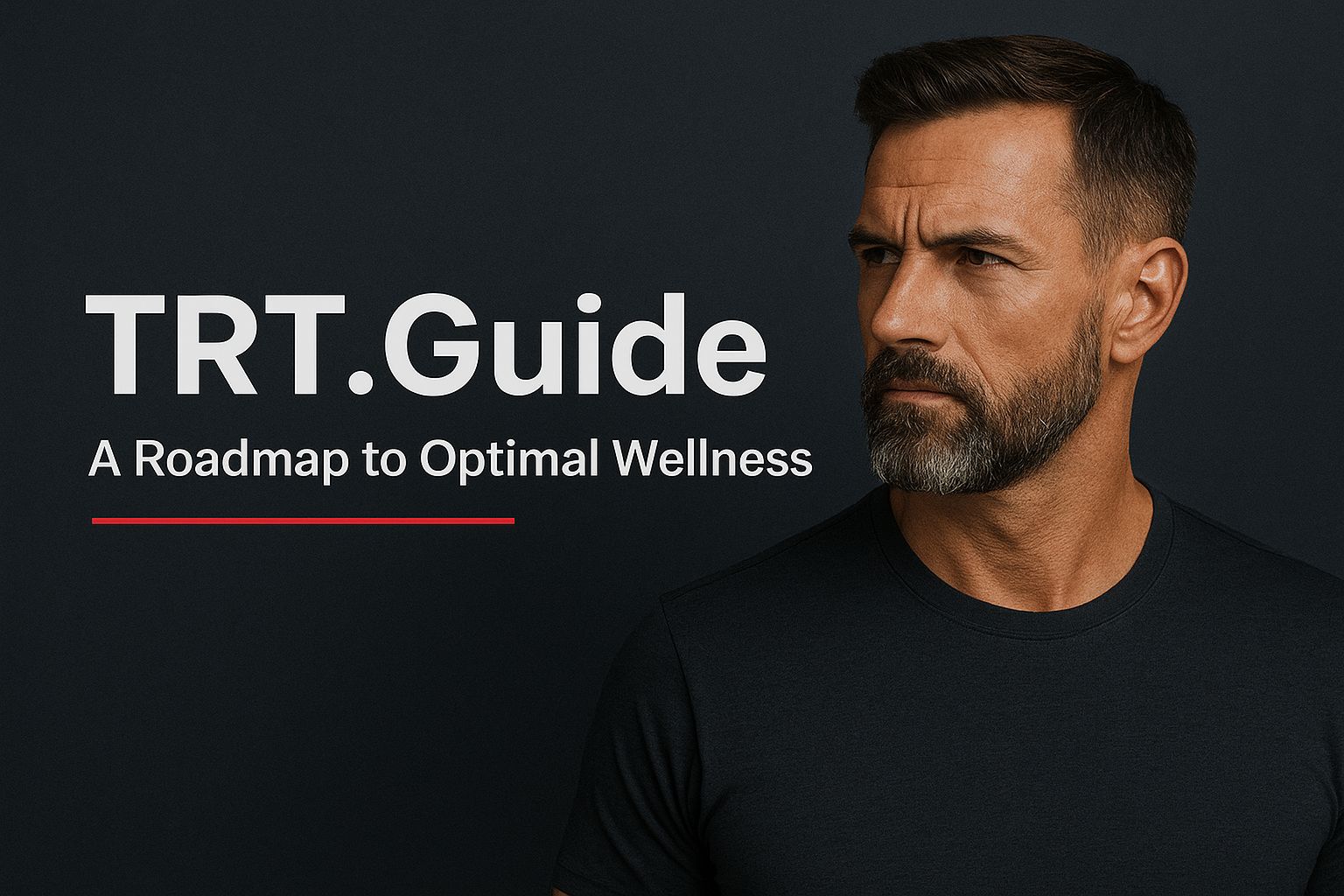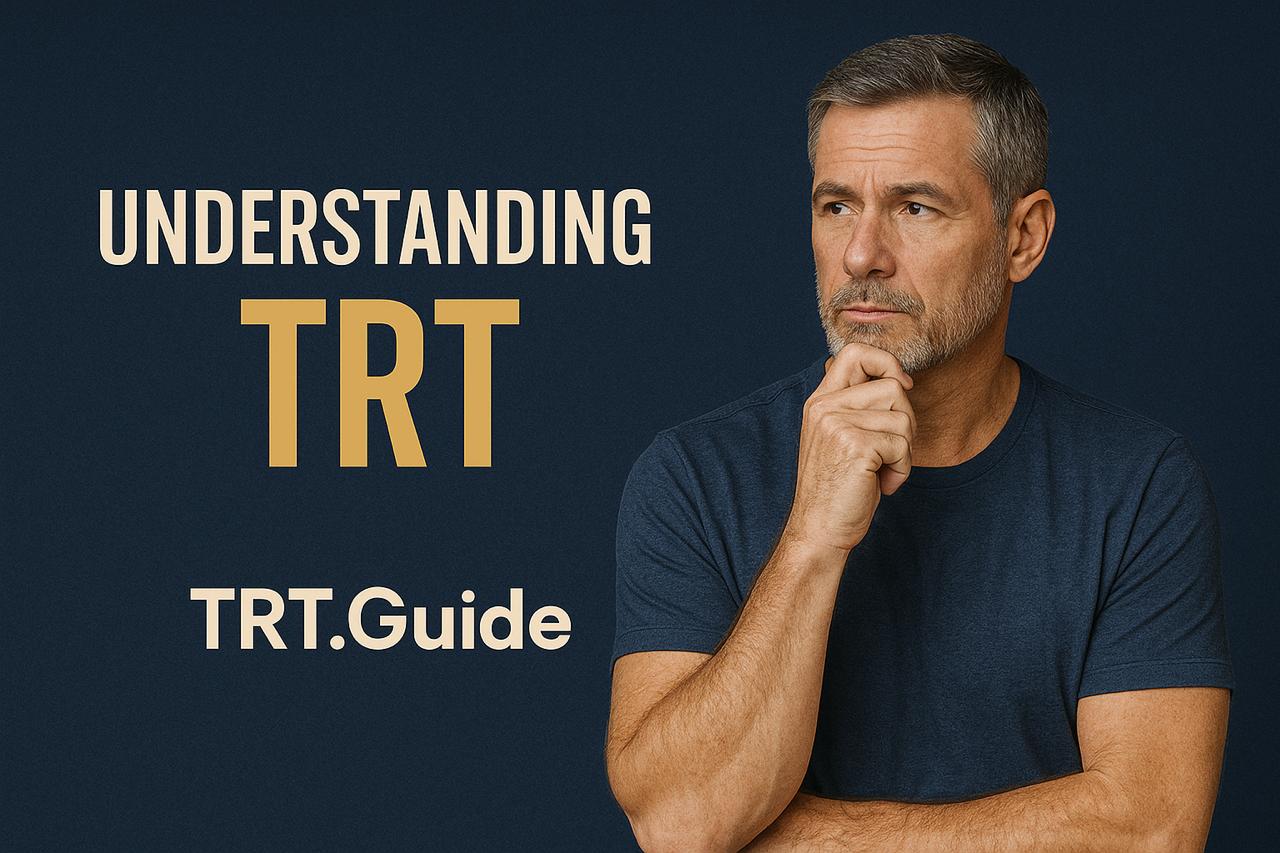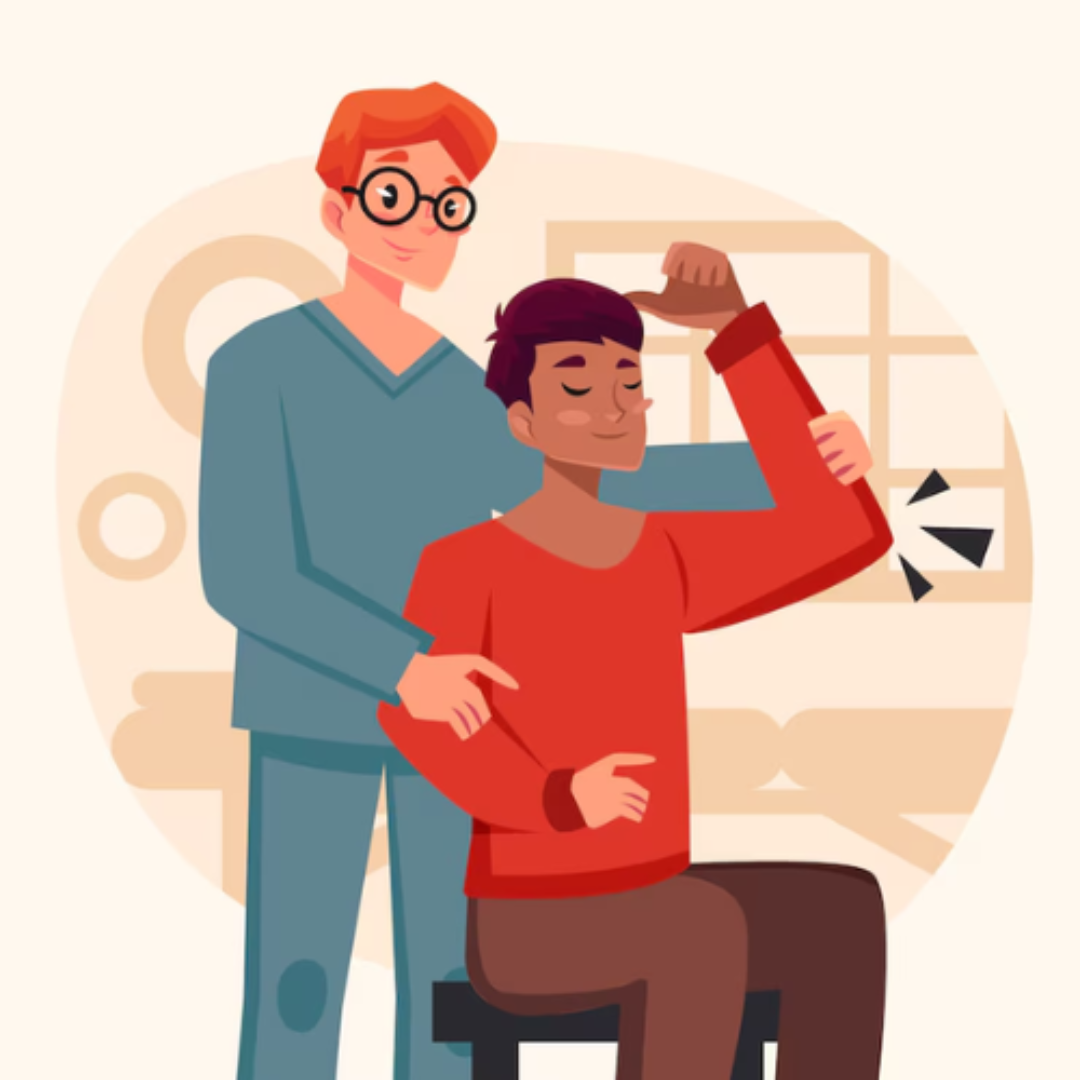Deciding to stop testosterone therapy has the power to not only push you to another stage but might also turn these steps cyclable and in that case you are not alone. Be it in one or the other side, the process can be very overwhelming when you are fully aware of what to expect from it.
One of the first steps that you should take in your journey of being a totally different person is to find out the things you need to know. There are many different aspects that can affect the shift in your mind and body, and being educated can help you cope with the change more easily. This paper gives us an insight into the possible changes, things you can do that will make the switch faster, and the different sources of information available, all of which can actually be helpful in your way. This can also be an eye-opener to your mental and physical welfare, hence the process of personal growth can be easily achieved.
Comprehending Everything about Testosterone Therapy
Testosterone therapy is the method which includes the intake of testosterone (the primary hormone responsible for one’s mood, energy, and physical health) to replace the low amount of testosterone in the body. The practice of testosterone as a medication occurs in several illnesses such as, e.g. hypogonadism, gender dysphoria, androgen deficiency in the elderly.
It is possible for a patient to face different ways of inserting testosterone:
- Injections: Injecting testosterone either into the muscle or below the skin, usually once every one to three weeks.
- Gels or Patches: Plastering a gel or a patch on the skin once every day to allow the testosterone to enter through the skin into the body.
- Pellets: Putting small pellets beneath the skin, thus with the help of them, the body slowly releases testosterone for a few months.
Understanding the benefits could be gained by you in the future helps you in the decision-making process. Usually, benefits are connected with more muscle mass, a better libido, a good mood, and an increase in energy levels. Nevertheless, there is a lot of variability among people in terms of the benefits observed.
The downside of testosterone therapy is that besides the benefits, there comes the side effects. Most of these are usually mild and are manifested through acne, hair loss, mood swings, and high cholesterol levels. The problems may, however, become more severe and the patient could develop such severe issues as heart diseases, sleeping problems, and problems in the prostate. The need to regularly visit the doctor is essential in preventing as well as detecting possible side effects i.e., physical decline due to disease.
As a patient, variations in mood and modifications in the body may surface in the process of therapy. These changes can have some negative impact on your responses and physical appearance also. It is of utmost importance to have an open conversation with your doctor as you go through treatment and there are any difficulties you are facing.
Good knowledge of the effects of testosterone therapy on your body and mind significantly contributes to the smooth changeover from the therapy. Insight into the likely stop of treatment complications is critical in planning for the shift you might undergo as you discontinue testosterone.
It’s a good idea to start with a discussion of the possibility of gradually reducing your drug intake instead of abruptly stopping the treatment. The aforementioned might be some of the withdrawal symptoms of the disorder that could appear among patients, although these are not indicative of any disease. Apart from these changes in habits and self-assessment in the psychosomatic patient, one should always remember to search for these symptoms to get the best support and care for the transition.
Asking for help through relevant channels (e.g. therapy or fellow group member relationships) is a surefire way to accomplish this purpose. Someone who has been in the same situation can not just give you emotional support but also tell you about their very efficient efforts in dealing with this process.
Reasons for Being Off Testosterone Therapy
Several reasons to quit testosterone therapy exist. You should understand the impact of the decision on health and personal well-being.
Health Issues
Most of the time, health issues are the driving force that leads patients to discontinue testosterone therapy. Potential side effects include a higher amount of red blood cells which can lead to a higher risk of forming blood clots. Cardiovascular problems, especially with long-term use, might arise, e.g., hypertension, or heart disease.
Hormonal imbalance is one of the most common reasons, besides, gynecomastia or the change in blood cholesterol levels are the ones that can occur. Hormone levels need to be measured regularly so that these issues can be caught in time. If in any case severe side effects are reported, doctors may reduce or stop therapy.
In addition, certain people might want to dash the hopes of avoiding long-term risks associated with hormone therapy by seeking different treatment such as lifestyle changes or natural supplements.
Personal Decision
Personal decisions always have a significant influence in deciding to terminate testosterone therapy. You could come to realize that the benefits have dwindled or the drawbacks have increased after a certain period, or maybe your goals have changed. Your change in identity or self-perception might have an impact too; many people, therefore, turn to assess their connection with their gender or overall health.
Some of the people here might be trying to reestablish their natural hormone production or expose themselves to various complementary health approaches. Normally, the decision to stop therapy matches the individual’s values, life changes, or shifts in personal circumstances. Being aware of and able to interpret your own thoughts and wishes helps you in taking well-informed decisions about your health trip.
Potential Effects of Discontinuation
Abandoning testosterone therapy can end up in various physical and mental changes. Knowing these potential effects of the therapy will get you ready and well-prepared for the transition.
Physical Changes
The use of testosterone may lead to various physical changes once the therapy has been stopped. Lean muscle mass may be lowered, while strength and stamina may be decreased, and there may be a change in the balance of your body causing weight gain. The skin may become dry, and hair loss may start to recur or new growth patterns may emerge. A lack of energy may accompany the above-mentioned physical changes, thus, resulting in increased fatigue.
The fluctuation in sex drive or sexual performance is the most common symptom because the hormonal levels undergo frequent changes. Physical activities, usually easier, may now seem harder with some people. It is vital to keep track of any physical symptoms and report them to the healthcare professional to properly deal with the situation and alleviate the symptoms effectively.
Emotional and Psychological Impact
One discontinuing emotional and psychological ups and downs usually replace testosterone therapy. Snapping moments of mood changes, especially when there is an increase in irritability, anxiety or sadness may be part of it. This transition may also show the person questioning things that they never questioned before or even the loss of the original self that can be the confusion faced in the emotional and mental self. Also, change in mental functions like less concentration and memory, can be the factors that cause the overall instability of a person emotionally.
In fact, some victims confess a kind of loss of connection with themselves and the world, feeling of being cut off, which requires social network assistance in one way or another. Getting in touch with a professional over the phone or being a member of support groups are some of the ways that one can get useful tips in dealing with the situation, thus it is likely that this could dissipate the psychological difficulties significantly by linking with the others who suffered the same affliction.
The successful transition of testosterone therapy requires a very well-organized plan, together with the resources that you could tap in order to get assistance and support throughout the program. It is during this period that the person will gain a thorough understanding of the physical and emotional changes he/she will undergo and consequently use resources like support groups effectively.
The professional healthcare service is of a great value in the course of achieving this transition. This refers to a situation where the patient is advised to openly talk to the doctor about the intention to quit the treatment and if he/she has any related concerns. Regular check-ups could be scheduled for a clearer picture of the status of the hormones, as well as other blood tests such as the red blood cell count which can explain your heart’s health condition.
Also, the bundle of services will include individualized guidance for a much less disturbing journey of healing through the reduction of symptoms of withdrawal due to their tapering plan. Speak with your healthcare provider to know if your symptoms are ordinary and can be managed such as mood swings or fatigue, and further get pieces of advice on how to deal with them. The overall improvement in counseling and alternate therapeutic intervention offered by health professionals like endocrinologists, and mental health caregivers will definitely see to your full recovery. When you hold a good relationship with your healthcare team, you are more than able to undergo a successful change process because they are a significant part of your life.
Building a sound support system is one of the essential components of the process of easing the transition. The best thing to do in this case is to surround yourself with people who not only understand you but can also be your friends, family, acquaintances, or a support group.
Peer support is a good outlet to express one’s feelings and also get support in tough times. It will also be a great idea to have a gender identity counselor or hormone therapy specialist counselor who can give you skills on how to cope up with different feelings and be your emotional helper, shred the stigma of seeking help as conversing with people close to you about your feelings and experiences can greatly ease the transition. The availability of the already existing resources is a very good idea and as they facilitate community feeling, at the same time, they furnish you with direction in the process.
Conclusion
Crossing the bridge from the health care of a patient to independent life is not easy, but it has the potential to be very rewarding. It is a combination of an informing experience of potential outcomes and good planning that will help you stay on the safe side of discomfort and the emotional storm.
While going through the process, it is important that you rely on your support system and communicate with healthcare professionals about the situation you are in so that they can offer you their support and you will feel that you are not the only one in this.
Frequent Ask Questions
Why would someone stop testosterone therapy?
People may opt to conclude their testosterone therapy due to medical reasons such as high red blood cell counts or cardiovascular risks or personal ones like the change of their goals or identity. Their reasons are valid either way.
What are the emotional effects of coming off testosterone therapy?
Termination of testosterone therapy is a move that can be very difficult to manage and bring about quite a significant effect, both good and bad, on a person. The abrupt discontinuation from such a therapy can indeed result in mood swings, hyper- or hypomaniacal states, feelings of loneliness or isolation, and ultimately, cognitive dysfunctions. Seeking professional help is recommended as those symptoms are indicative of mental problems.
What is the process of managing the transition off testosterone therapy for me, please?
Handling the process of getting off testosterone therapy is minute project planning, the need for communication with healthcare providers and their subsequent development of a personalized taper-off program to mitigate withdrawal symptoms. Regular visits with physicians are important as they give insight into the levels of hormones in the body and the overall health of the patient.
What are some of the resources that I can avail of to support the transition?
There are various means of getting support during this transition like: professional counseling, groups that offer peer support, and experts who treat gender identity or hormone therapy. Finding companionship with supportive persons in one’s life reduces the anxiety coming from alienation by providing more ways of coping and even a broader understanding of the experience at this tough time.






